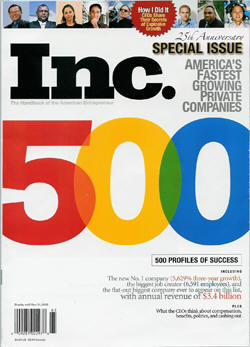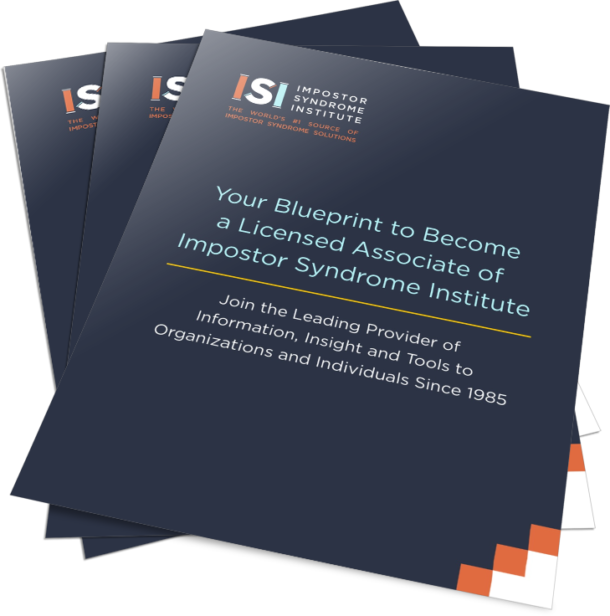The Impostor Syndrome
Why Do So Many Successful Entrepreneurs Feel Like Fakes?
September 2006
By Leigh Buchanan
By most definitions, Bud Stockwell has hit the personal-fulfillment trifecta. At 53, he owns a profitable $2 million health food store called Cornucopia. His business is a beloved institution in Northampton, Massachusetts. Cornucopia also satisfies its founder’s activist urges by providing a platform from which to promote natural, healthy living.
In fact, Cornucopia is such a fine business that last year it was named best small natural foods store in America by a natural products publication. When a reporter called to interview the owner for an article about his award, Stockwell readily answered her questions. But then he told no one. Not his wife. Not his daughter. Not one of his 23 employees. “The magazine came out two months later and it was almost like I was embarrassed by it,” says Stockwell. “I didn’t feel like I deserved it. I think we have a great business, but how much of that was because of me and how much is because of our location or the staff? There’s still part of me that always questions that.”
Stockwell’s self-doubt is an example of the impostor syndrome, a term coined in the ‘70s to describe the fear that one is not as smart or capable as others think. People who feel like fakes chalk up their accomplishments to external factors such as luck and timing, or worry they are coasting on charm and personality rather than on talent. Psychological research done in the early 1980s estimated that two out of five successful people consider themselves frauds; other studies have found that 70 percent of all people feel like fakes at one time or another. “Some people, the more successful they become, the more they feel like frauds,” says Valerie Young, who leads workshops and professional development programs on the subject. “They feel as though they’re fooling people. There’s a dissonance between self-image and external reality.”
Such sentiments seem at odds with entrepreneurship. Starting companies, after all, requires plus-size confidence, and few positions are more exposed than the summit of one’s own business. In addition, factors that often contribute to the impostor syndrome–such as poor academic records and uninspiring early careers–are badges of pride for many entrepreneurs, who often speak derisively of M.B.A.’s and have made “fake it till you make it” a mantra.
“I know my company, but I don’t have skills that I could apply somewhere else,” says one entrepreneur. “I feel like a lot of what I’ve done has been a fluke.”
In other ways, though, entrepreneurship is a perfect breeding ground for the syndrome. “People who have had bad experiences in organizations may see entrepreneurship as the only way out because it allows them to control their lives,” says Manfred Kets de Vries, a psychoanalyst and professor of leadership development at Insead, in France. With no boss, company founders can avoid critical scrutiny. Buffered by their relative control of the environment, entrepreneurs may feel ill-equipped to survive in the outside world. “I’ve always felt if I stopped doing Cornucopia, who would hire me?” says Stockwell. “If I think about it rationally, I know there’s good reason I’m successful. But it wouldn’t take a lot to shake my confidence.” Adds Steven Myhill-Jones, CEO of Latitude Geographics Group, a $2.5 million geographic-analysis software company in Victoria, British Columbia: “I know my company, but I don’t have skills that I could go apply somewhere else. I feel like a lot of what I’ve done has been a fluke or good timing.”
Ironically, it was Latitude’s inability to exploit good timing that upped its odds of survival. Although Latitude Geographics was born amid dot-com bounty, Myhill-Jones was starved by the banks, which questioned his lack of experience (he started his business at 23, with a resumé consisting of a bachelor’s degree in geography and an internship at a land-use agency). He grew dejected watching other wing-and-a-prayer companies attract large investments. When a direct competitor landed $12 million in venture funding, he considered folding. “I felt like I had no business being in business,” Myhill-Jones says. Myhill-Jones may have felt like a fake, but he acted like a real entrepreneur and expanded the business organically. That strategy made it healthy–far healthier than the venture-backed competitor, which soon collapsed.
Another Achilles’ heel has to do with expectations. The public assumes CEOs will be knowledgeable about every aspect of their businesses, and business is getting more complex. In this respect, those with scant education are especially vulnerable. “It’s like the skills I have are just commonsense skills, like being able to relate to people,” says Stockwell. “They don’t feel as valid as knowledge-based skills.” Myhill-Jones, for his part, is the founder of a software company who knows very little about technology. “To this day I can’t do the work we do,” he says. “I can make a comment on the user interface or something. But I don’t understand the underlying technology.”
Both Myhill-Jones and Stockwell have coped chiefly by hiring around their perceived deficiencies. Other responses are less salutary. In the corporate world, where the impostor syndrome is well documented, self-doubters may turn down promotions or switch jobs to avoid exposure. Entrepreneurs sometimes decline interviews and speaking engagements, or even designate someone else to be the public face of their companies. Many wear away their noses through ceaseless application to grindstones. “They think, ‘Sure, I’m successful but it’s only because I’m working 80 hours a week,’” says Young. “‘If I let up for a second, it’s all going to fall apart.’”
In extreme cases, desperate efforts to shore up foundations perceived as weak can bring down the whole structure, says Kets de Vries. He recalls treating one entrepreneur who felt himself wholly inadequate to run a company, as though nothing he did was ever good enough. “So he kept pushing and pushing,” says Kets de Vries. “His company was falling apart, his wife had left him, his children didn’t like him anymore. He had physical symptoms.” Kets de Vries suggests that those who feel like a phony bring on a partner. Valerie Young suggests a simpler approach: Treat faking it as a strength. “If you’re an entrepreneur you’re going to have to wing it,” she says.
The impostor syndrome may be especially problematic among women. In the business realm, female CEOs are still rare enough that many believe their performance is being watched more closely and that their success or failure reflects directly on their female peers. Fundamental issues of nature and nurture also apply. “There’s a lot of evidence that boys growing up tend to blame things outside of themselves when things go wrong: The other team cheated; the referee wasn’t fair; the teacher didn’t give us enough time to study,” says Young. “Girls tend to blame themselves. So when they don’t make the sale, the customer isn’t saying he doesn’t like the product–he’s saying, ‘You’re inadequate.’”
Academic research holds that men and women experience the impostor syndrome in comparable numbers, but “I’ve been doing this 25 years, and anecdotally that’s not what I’ve found,” says Young. “I’ll meet some guy on a plane and I’ll tell him what I do and he doesn’t get it. He’ll say, ‘That’s stupid. Why would anybody feel that way?’”


